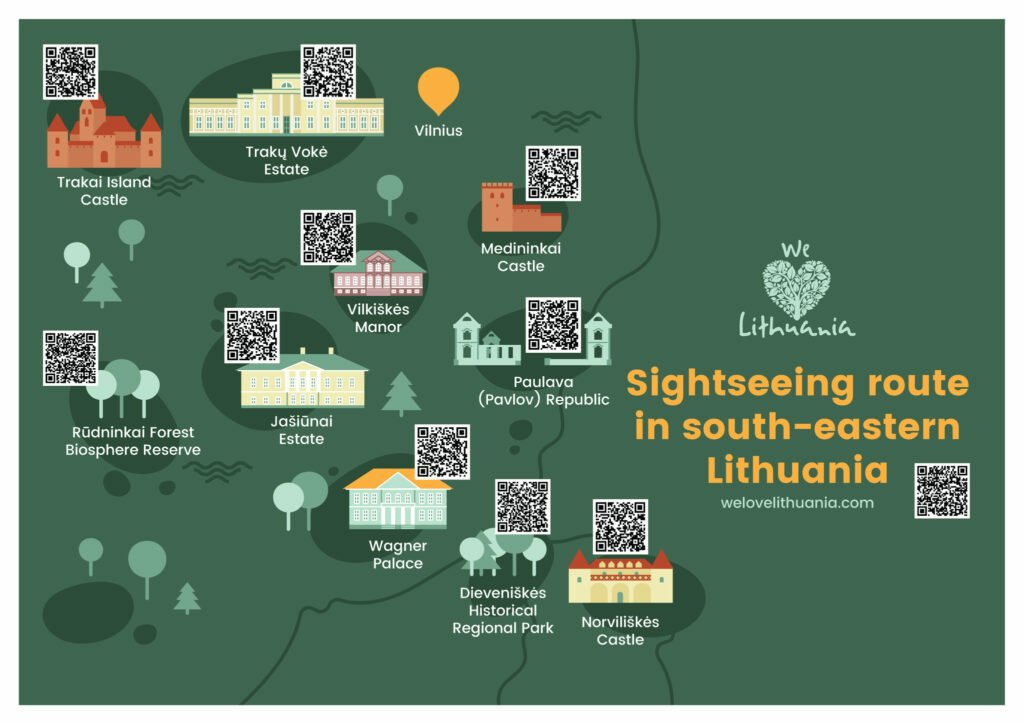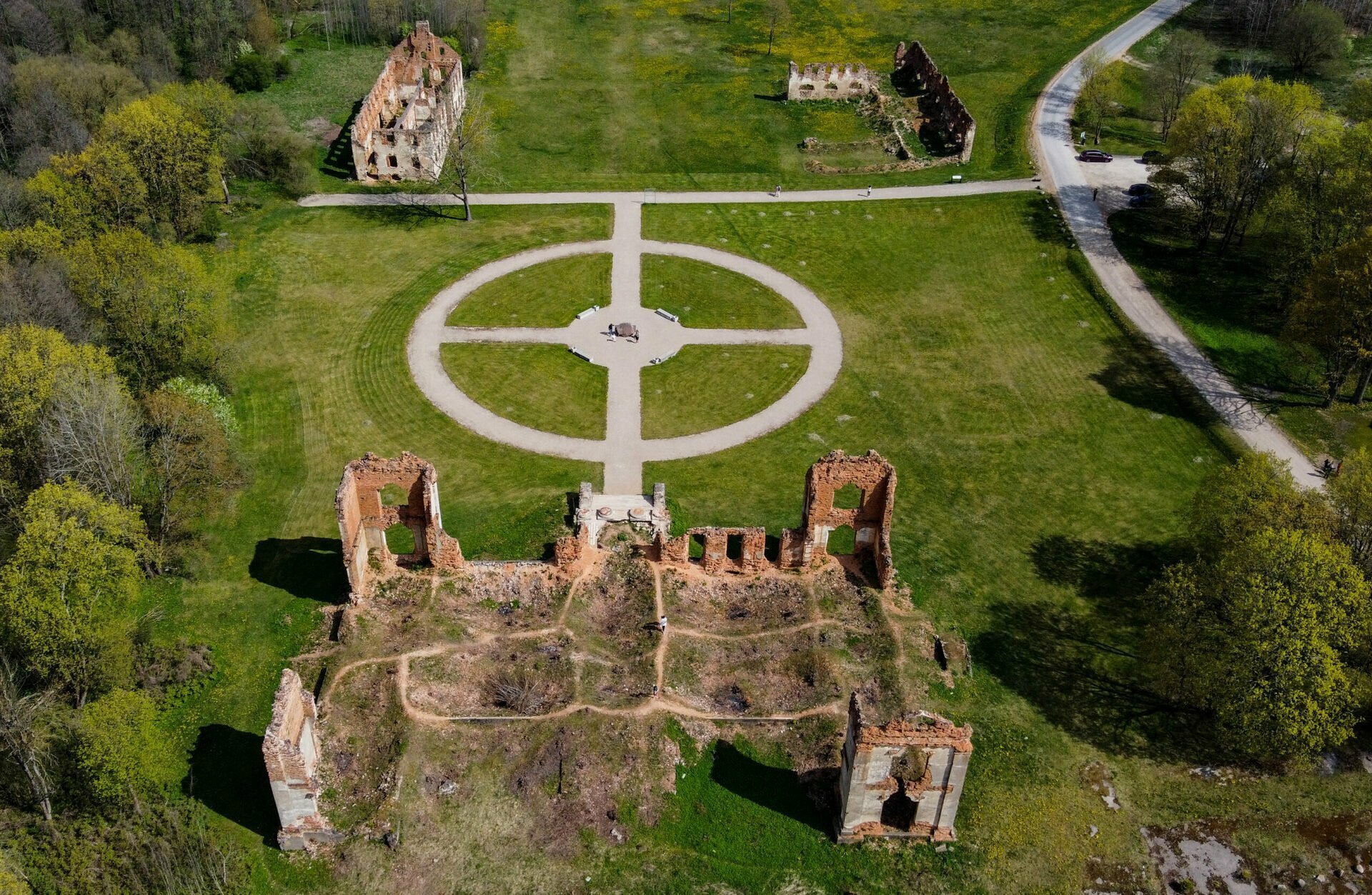The Republic of Paulava (Pavlov) is one of the most unique phenomena in Lithuanian history. It is an autonomous republic that existed in the 18th century, in the times of serfdom, in Merkinė, not far from Vilnius, in the present-day district of Šalčininkai, and had its own constitution, coat of arms, president, peasants’ parliament, money, treasury, mutual assistance fund, militia, and school. Today, we are reminded of it only by the fragments of the manor house, stables and other buildings, but in the second half of the 18th century it was the place where the most radical and progressive peasant reform in the Republic of the Two Nations was implemented.
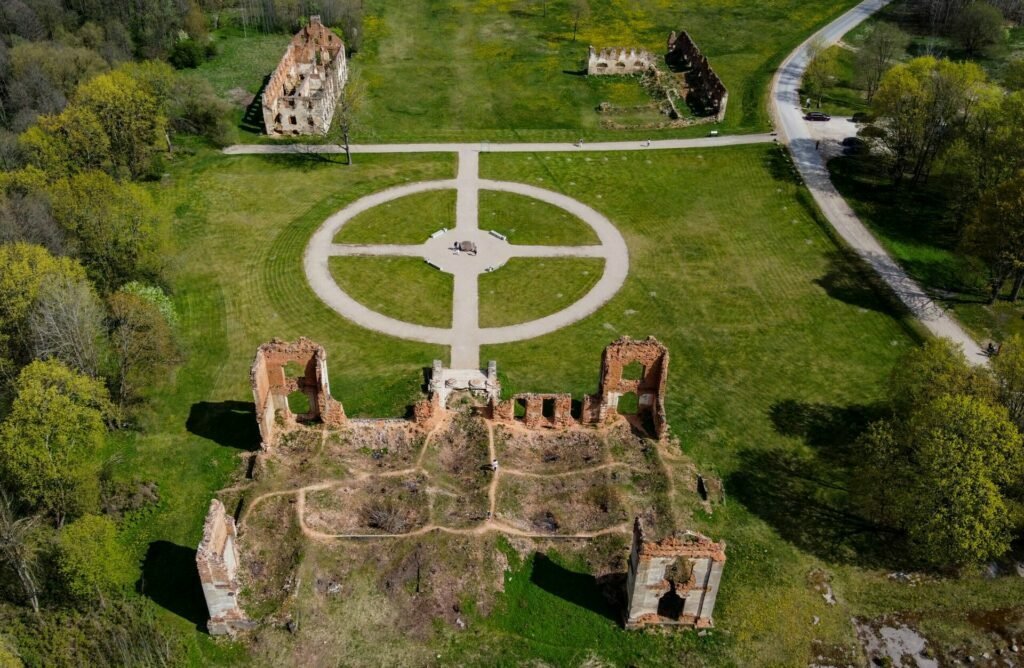 Today, if you go to Merkinė, you will find the remains of the former Paulava (Pavlov) Republic: the manor house, the servant house (oficinne), the authentic ruins of the stables from the time of the republic’s founder, P. K. Brzostowski, and the completely restored manor’s icehouse. To satisfy visitors’ curiosity, there are also 3D stands which give a preliminary view of what the manor looked like before it was completely destroyed. The stands allow you to see the architectural forms of the manor house and the outhouse from the late 19th to the early 20th century, as they are based on surviving photographs from that period.
Today, if you go to Merkinė, you will find the remains of the former Paulava (Pavlov) Republic: the manor house, the servant house (oficinne), the authentic ruins of the stables from the time of the republic’s founder, P. K. Brzostowski, and the completely restored manor’s icehouse. To satisfy visitors’ curiosity, there are also 3D stands which give a preliminary view of what the manor looked like before it was completely destroyed. The stands allow you to see the architectural forms of the manor house and the outhouse from the late 19th to the early 20th century, as they are based on surviving photographs from that period.
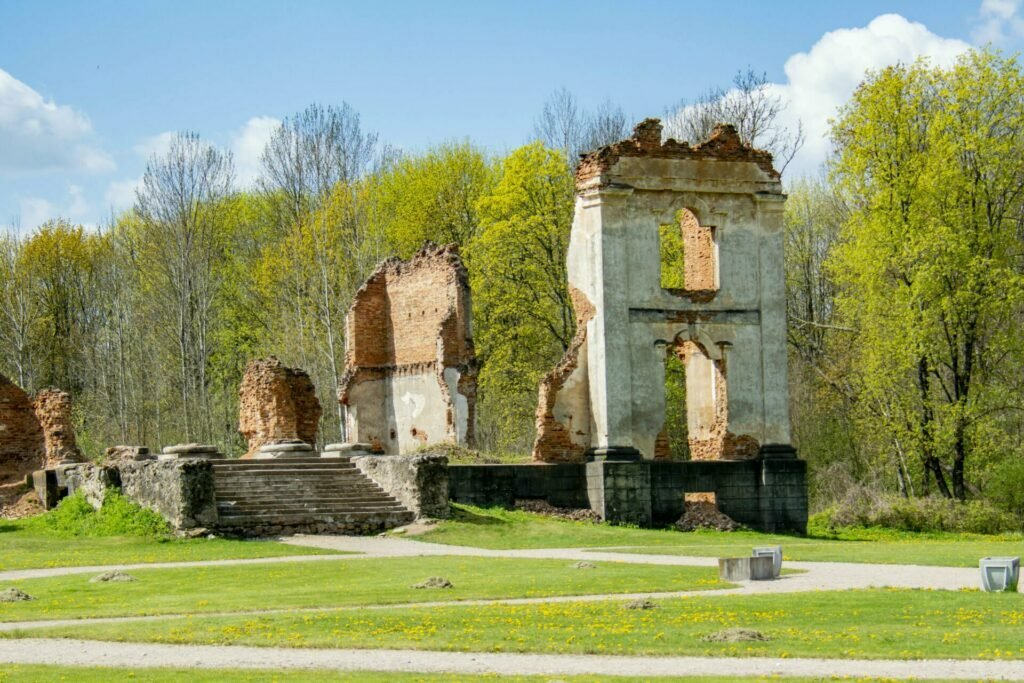 The Republic of Paulava was founded in 1769 when the Merkinė estate was acquired by the Vilnius canon Paweł Ksawery Brzostowski. After buying a rather dilapidated land together with serfs, P. K. Brzostowski gradually discharged the peasants from a duty to work in the manor’s arable land and abolished the corvee, and made the rental fee for land payable in money rather than labour. Peasants were allowed to freely manage their property, including land, to engage in trade and crafts (so that they could pay rents), and to enjoy personal freedom. Brzostowski set up a school and made efforts to translate books for peasants. He attached great importance to education and health care. He gave the peasants a statute (the Constitution), and self-government in the form of a peasants’ parliament, which elected him president for life as a benefactor. He set up a court of law made up of the peasants themselves, and appointed rangers and field supervisors from among them. He formed an army of 150 men, which trained every day so that it would be ready to defend the homeland … He established the Republic of Paulava, which was later recognised by Stanislaw August Poniatowski, Grand Duke of Lithuania and King of Poland.
The Republic of Paulava was founded in 1769 when the Merkinė estate was acquired by the Vilnius canon Paweł Ksawery Brzostowski. After buying a rather dilapidated land together with serfs, P. K. Brzostowski gradually discharged the peasants from a duty to work in the manor’s arable land and abolished the corvee, and made the rental fee for land payable in money rather than labour. Peasants were allowed to freely manage their property, including land, to engage in trade and crafts (so that they could pay rents), and to enjoy personal freedom. Brzostowski set up a school and made efforts to translate books for peasants. He attached great importance to education and health care. He gave the peasants a statute (the Constitution), and self-government in the form of a peasants’ parliament, which elected him president for life as a benefactor. He set up a court of law made up of the peasants themselves, and appointed rangers and field supervisors from among them. He formed an army of 150 men, which trained every day so that it would be ready to defend the homeland … He established the Republic of Paulava, which was later recognised by Stanislaw August Poniatowski, Grand Duke of Lithuania and King of Poland.
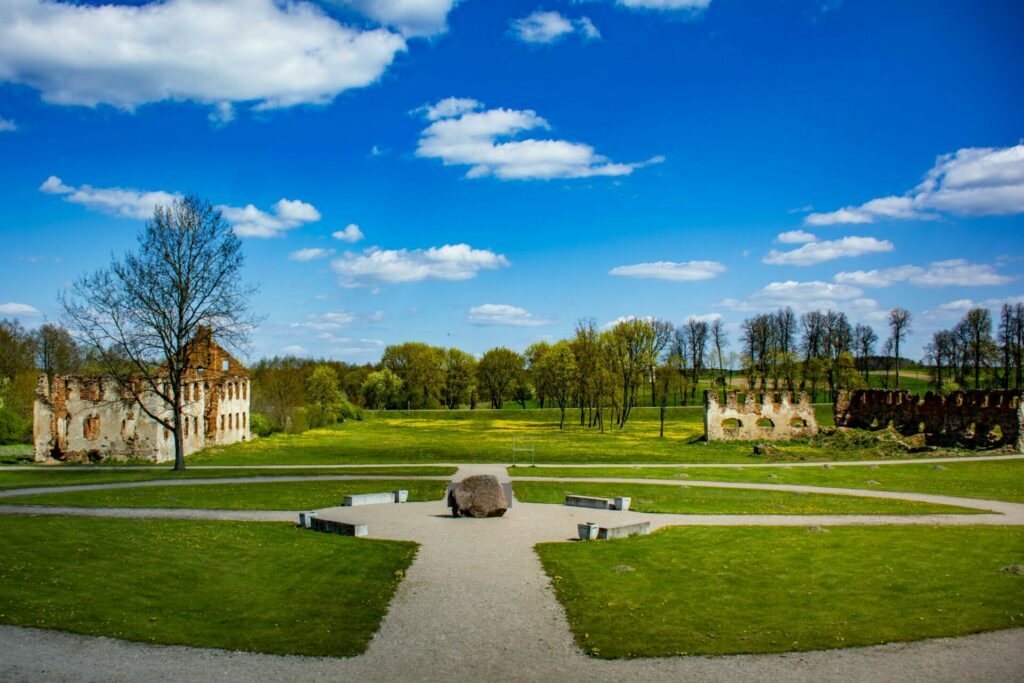 The Republic existed for 26 years, from 1769 to 1795 (until the Third Partition of the Republic of the Two Nations). During this period, the income of the manor more than doubled, as the peasants became more willing and productive by giving them the freedom to manage themselves, to earn an income and to educate themselves. The reform of the Paulava Republic made the inefficiency of the serfdom system very clear.
The Republic existed for 26 years, from 1769 to 1795 (until the Third Partition of the Republic of the Two Nations). During this period, the income of the manor more than doubled, as the peasants became more willing and productive by giving them the freedom to manage themselves, to earn an income and to educate themselves. The reform of the Paulava Republic made the inefficiency of the serfdom system very clear.
This article is a part of a project implemented within the framework of the Innovation of Tourism Services and Products Program, with funding from the Agency for Science, Innovation and Technology, and from funds allocated by the Ministry of Economy and Innovation of the Republic of Lithuania.

